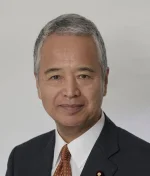Japanese politician Akira Amari sees limits to America's chip dreams. As a semiconductor expert, he points out that the US can make the actual chips but lacks much else. The supply chain includes special tools, chemicals, and parts from places like Japan, Taiwan, and South Korea. Building everything inside US borders just isn't going to happen.
Amari thinks countries already making these crucial supplies should team up. They could build stronger networks at home instead of rushing to help American factories. His view comes right after TSMC said they'd put another $100 billion toward US operations. No matter how big or rich a country might be, making chips requires global teamwork.
The problem goes beyond just setting up factories. Even with lots of money and natural resources, semiconductor manufacturing needs specialized equipment from the Netherlands, materials from Belgium, and expertise from Taiwan. These pieces can't all exist in one place because they took decades to develop in different parts of the world.
Countries need each other for this high-tech industry. Amari believes nations should focus on what they do best rather than trying to copy everything America wants. His ideas challenge the push for each country to stand alone in chip-making. The reality remains that semiconductor production depends on international partnerships regardless of political pressure.
Amari thinks countries already making these crucial supplies should team up. They could build stronger networks at home instead of rushing to help American factories. His view comes right after TSMC said they'd put another $100 billion toward US operations. No matter how big or rich a country might be, making chips requires global teamwork.
The problem goes beyond just setting up factories. Even with lots of money and natural resources, semiconductor manufacturing needs specialized equipment from the Netherlands, materials from Belgium, and expertise from Taiwan. These pieces can't all exist in one place because they took decades to develop in different parts of the world.
Countries need each other for this high-tech industry. Amari believes nations should focus on what they do best rather than trying to copy everything America wants. His ideas challenge the push for each country to stand alone in chip-making. The reality remains that semiconductor production depends on international partnerships regardless of political pressure.












